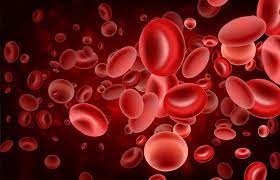
It was discovered that people will not age at the same pace if they have an uncontrolled level of iron in the blood that automatically affects the development of diseases typical of a certain age.
The level of iron in the blood could be the key to slow down aging, shows a gene study that worked by scientists with University of Edinburgh and with Max Planck Institute for Biology of Ageing in Germany. Scientists identified genes associated with aging, which could help and give an answer to the question – why people old different speed, or why some are getting old, and some have been young and vital long.
The key to longer life could be a normal level of iron in the blood
An international study, published in the journal Nature Communications, using genetic data from more than a million people, suggests that maintaining normal blood iron levels could be the key to slower, better aging and longer life. The findings could accelerate the development of drugs to reduce age-related diseases, extend healthy years of life and increase the chances of living to a disease-free old age, the researchers said. The scientists focused on three measures associated with biological aging – life span, years of disease-free life (health life expectancy), and longevity.

Biological aging – the rate at which our bodies lose vitality over time varies between people and causes the world’s deadliest diseases, including heart disease, dementia and cancer. The researchers gathered information from three public datasets to enable analysis in unprecedented detail. The combined data set was equivalent to studying 1.75 million lifetimes, or more than 60,000 extremely long-lived people.
Iron levels in the blood suppress Parkinson’s and liver disease
A team of scientists has discovered that genes involved in the metabolism of iron in the blood are partly responsible for a healthy long life. The researchers remind us that diet affects the level of iron in the blood and that abnormally high or low levels of iron are associated with some health conditions typical of a certain age, i.e. life span, such as Parkinson’s disease, liver disease and a decline in the body’s ability to fight against infection in old age. In this regard, they state that formulating a drug that could mimic the impact of genetic variation on iron metabolism could be a step in overcoming some of the effects of aging in the future.
The goal of scientists – how to improve health during aging

“These findings are very important because they strongly suggest that high levels of iron in the blood reduce the number of ‘healthy’ years of life. Keeping these levels under control can prevent conditions and damage to the body that come with age. We believe that our discoveries about iron metabolism would could also explain why very high levels of iron-rich red meat in the diet are associated with age-related conditions such as heart disease”,
emphasized Dr. Paul Timmers from the Usher Institute at the University of Edinburgh.
Dr. Joris Deelen from the Max Planck Institute for Biology of Aging in Germany pointed out that the goal of scientists is to discover how aging is regulated and to find ways to improve health during aging.
“Ten regions of the genome that we have discovered, which are related to life span, health and longevity are the best candidates for further studies”,
emphasized Dr. Deelen.
If you are interested in more topics about science and everyday life, click subscribe for more posts.

Leave a comment